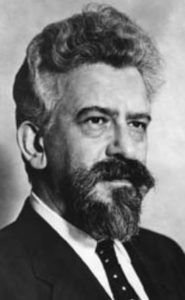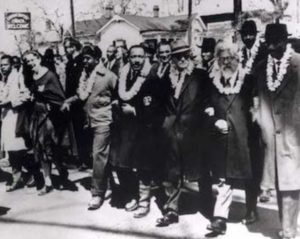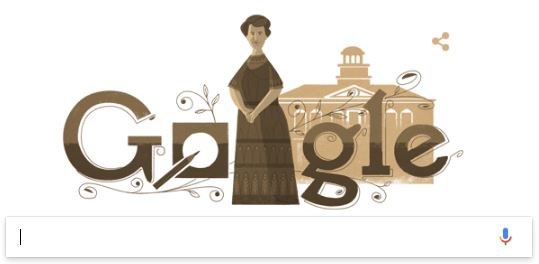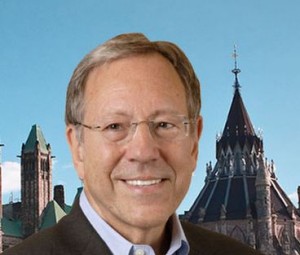The Rabbi Who Marched With Martin Luther King Jr.

Rabbi Heschel
Avraham Yehoshua Heschel (1907-1972) was born in Poland to a long line of Hasidic rabbis from both his father’s and mother’s side. He was named after his ancestor, the Apter (or Apatower) Rebbe. After receiving semicha (rabbinic ordination) himself, Rabbi Heschel decided to pursue secular studies at the University of Berlin. (There he briefly crossed paths with three other future great rabbis: Yitzchak Hutner, Joseph B. Soloveitchik, and the Lubavitcher Rebbe.) While earning his Ph.D in philosophy, Heschel also studied at Berlin’s Reform seminary and received a liberal rabbinic ordination to go along with his Orthodox one. Meanwhile, he was part of a Yiddish poetry club and published his own book of Yiddish poems in 1933. Heschel was arrested by the Gestapo in 1938 and deported back to Poland. He moved to London just six weeks before Poland was invaded by the Nazis. (His mother and three sisters perished in the Holocaust.) Heschel eventually settled in New York. He first worked at the (Reform) Hebrew Union College for five years before switching over to the (Conservative) Jewish Theological Seminary. There he spent the rest of his career as a rabbi and professor of Jewish ethics and Jewish mysticism. Despite working at these institutions, Heschel never identified himself with any particular Jewish denomination, and was himself strictly Torah-observant. His discourses often weaved together Biblical, Kabbalistic, and Hasidic teachings. He especially focused on the ancient Hebrew prophets, and sought to revive their message in healing today’s world. Because of this, he was an active civil rights and peace activist. Heschel famously marched alongside Martin Luther King, Jr. in Selma. Later that year, he presented King with the ‘Judaism and World Peace Award’. The two formed a very close friendship. Heschel also wrote numerous books, including five bestsellers. These books have been credited both with bringing countless Jews back to traditional observance, as well as opening up the study of Judaism to the wider world. Heschel worked hard to build bridges between Jews and gentiles. He represented the Jewish world at the Second Vatican Council between 1962 and 1965, successfully getting the Catholics to formally abandon the belief that Jews were responsible for Jesus’ crucifixion—and therefore that all Jews are “accursed”—and to remove all prayers derogatory to Jews. Heschel is considered one of the most influential Jews of the 20th century, and remains among the most widely read and studied Jewish philosophers and theologians. Today, the 18th of Tevet, is his yahrzeit.
Words of the Week
Prophecy is the voice that God has lent to the silent agony, a voice to the plundered poor, to the profane riches of the world. It is a form of living, a crossing point of God and man. God is raging in the prophet’s words.
– Rabbi Abraham Joshua Heschel

Rabbi Abraham Joshua Heschel (second from right) with Martin Luther King Jr. marching on Selma in 1965.



